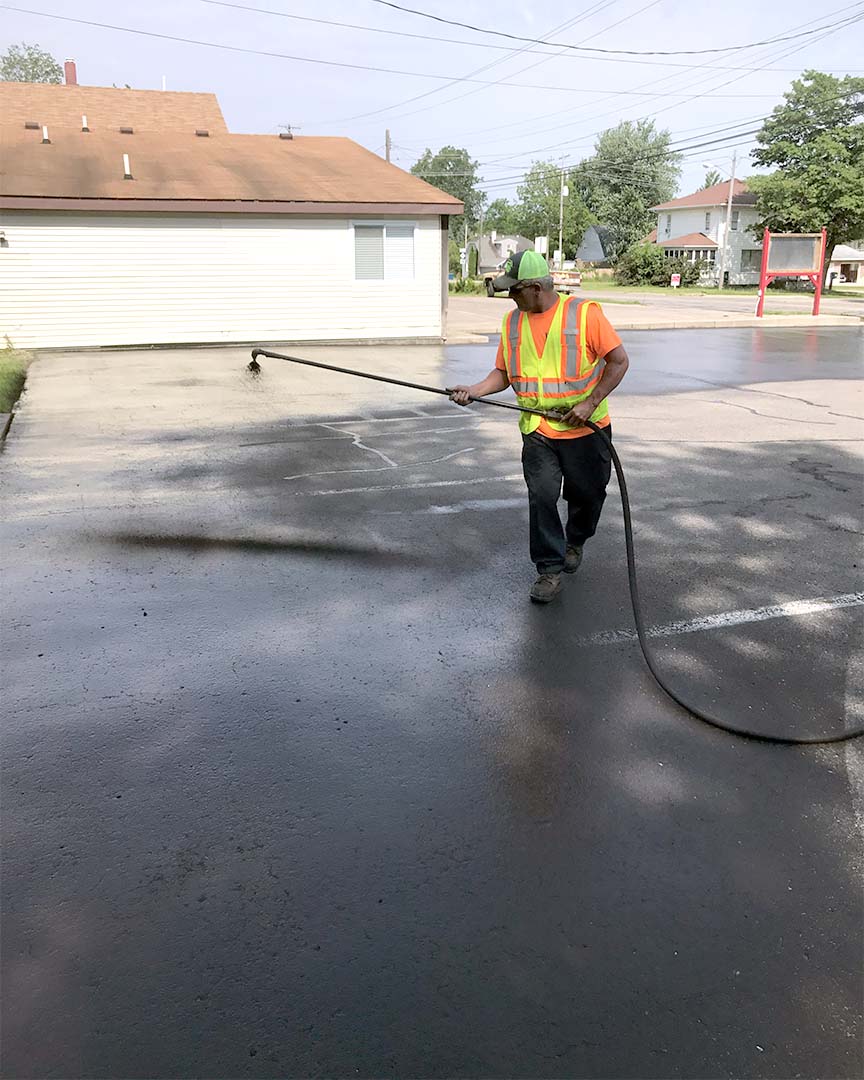Optimize Safety with Angle Parking Lot: Superior Asphalt Sealing
Cold Mix Asphalt Vs. Hot Mix Asphalt: Which Is Right for You?

Composition Differences
Cold mix asphalt is created by emulsifying the asphalt binder with water and an emulsifying agent prior to blending it with accumulation. The warm mix asphalt manufacturing process includes warming the accumulation and asphalt binder separately prior to incorporating them at the asphalt plant.
Furthermore, chilly mix asphalt often tends to be less dense and more adaptable than hot mix asphalt. This adaptability makes it far better fit for locations with greater degrees of motion, such as driveways or roadways with rush hour. In contrast, warm mix asphalt is recognized for its high toughness and resistance to rutting and cracking, making it a preferred option for highways and high-traffic roadways where longevity is critical.
Setup Process Variations
The process of installing cool mix and hot mix asphalt exhibits remarkable differences in their procedures and needs. In comparison, warm mix asphalt requires an extra intricate setup process. Due to the home heating demands, hot mix asphalt installments are generally brought out by specialists with customized equipment, making sure a more irreversible and structurally audio outcome.
Resilience and Longevity Variables
When considering asphalt alternatives, sturdiness and longevity are critical variables to examine for long lasting sidewalk performance. Hot mix asphalt (HMA) is understood for its extraordinary toughness and durability. The high temperature levels during the laying and mixing procedure allow for better compaction, leading to a denser and more powerful sidewalk structure. This leads to HMA being much more resistant to rush hour tons, harsh weather condition conditions, and the results old compared to cold mix asphalt (CMA)
In regards to long life, HMA usually outshines CMA as a result of its remarkable stamina and resistance residential properties. HMA sidewalks have a longer life span, calling for much less constant repairs and maintenance, which can translate to cost savings in the future. Additionally, HMA pavements are more easily adjustable to satisfy particular project needs, better enhancing their resilience.
Cost Factors To Consider
Considering the economic implications is a critical element when reviewing the selection between warm mix asphalt (HMA) and chilly mix asphalt (CMA) for pavement tasks. While the first cost of hot mix asphalt is usually greater than that of chilly mix asphalt, HMA usually offers a more cost-effective option in the long run due to its remarkable longevity and durability.
In enhancement to product costs, it's important to consider the expenses related to installment and maintenance when contrasting HMA and CMA. HMA generally needs customized equipment and knowledgeable labor for appropriate installment, which can influence overall task prices. Conversely, CMA is easier to collaborate with and can frequently be applied using less complex techniques, potentially lowering installation expenses. Ultimately, the choice in between HMA and CMA need to consider not just the preliminary price however likewise the long-term economic ramifications to figure out the most cost-effective alternative for the details sidewalk project.
Environmental Influence Contrast
Contrast of the ecological influences between warm mix asphalt (HMA) and cold mix asphalt (CMA) exposes distinctive differences in sustainability practices. HMA manufacturing needs heats, bring about boosted power intake and greenhouse gas emissions. The process likewise launches unstable natural substances (VOCs) and harmful air pollutants (HAPs) into the ambience. On the other hand, CMA is generated and applied at reduced temperatures, lowering energy use and emissions substantially. The lower manufacturing temperatures of CMA result in lowered fuel intake and reduced levels of CO2 emissions, making it a more eco-friendly option.
Additionally, using CMA frequently entails recycling existing asphalt pavement, promoting resource preservation and reducing the amount of waste sent to landfills. check that This reusing element additionally enhances the sustainability of CMA contrasted to HMA. In general, when taking into consideration the environmental effect, CMA arises as a much more ecologically sustainable option as a result of its lower power requirements, lowered exhausts, and the possibility for recycling existing materials. By choosing for CMA over HMA, roadway building tasks can add favorably to environmental conservation efforts.
Conclusion
In verdict, the selection in between cold mix asphalt (CMA) and warm mix asphalt (HMA) depends upon various factors such as make-up, installment procedure, durability, longevity, price, and ecological effect. angle parking. While CMA offers a cost-efficient and quick solution for minor repairs, HMA ensures exceptional toughness and durability for rush hour areas. Take into consideration these variables meticulously to identify which type of asphalt is the appropriate choice for your paving requires

Thinking about the financial ramifications is a vital element when assessing the selection in between warm mix asphalt (HMA) and cool mix asphalt (CMA) for sidewalk jobs. While the initial cost of hot mix asphalt is generally greater than see this site that of chilly mix asphalt, HMA frequently gives a more cost-effective solution in the lengthy run due to its exceptional resilience and durability. angle parking.Comparison of the ecological influences in between hot mix asphalt (HMA) and cold mix asphalt (CMA) exposes unique differences in sustainability methods.In conclusion, the option between cool mix asphalt (CMA) and warm mix asphalt (HMA) depends on numerous elements such as structure, have a peek at this site setup procedure, sturdiness, longevity, cost, and ecological influence